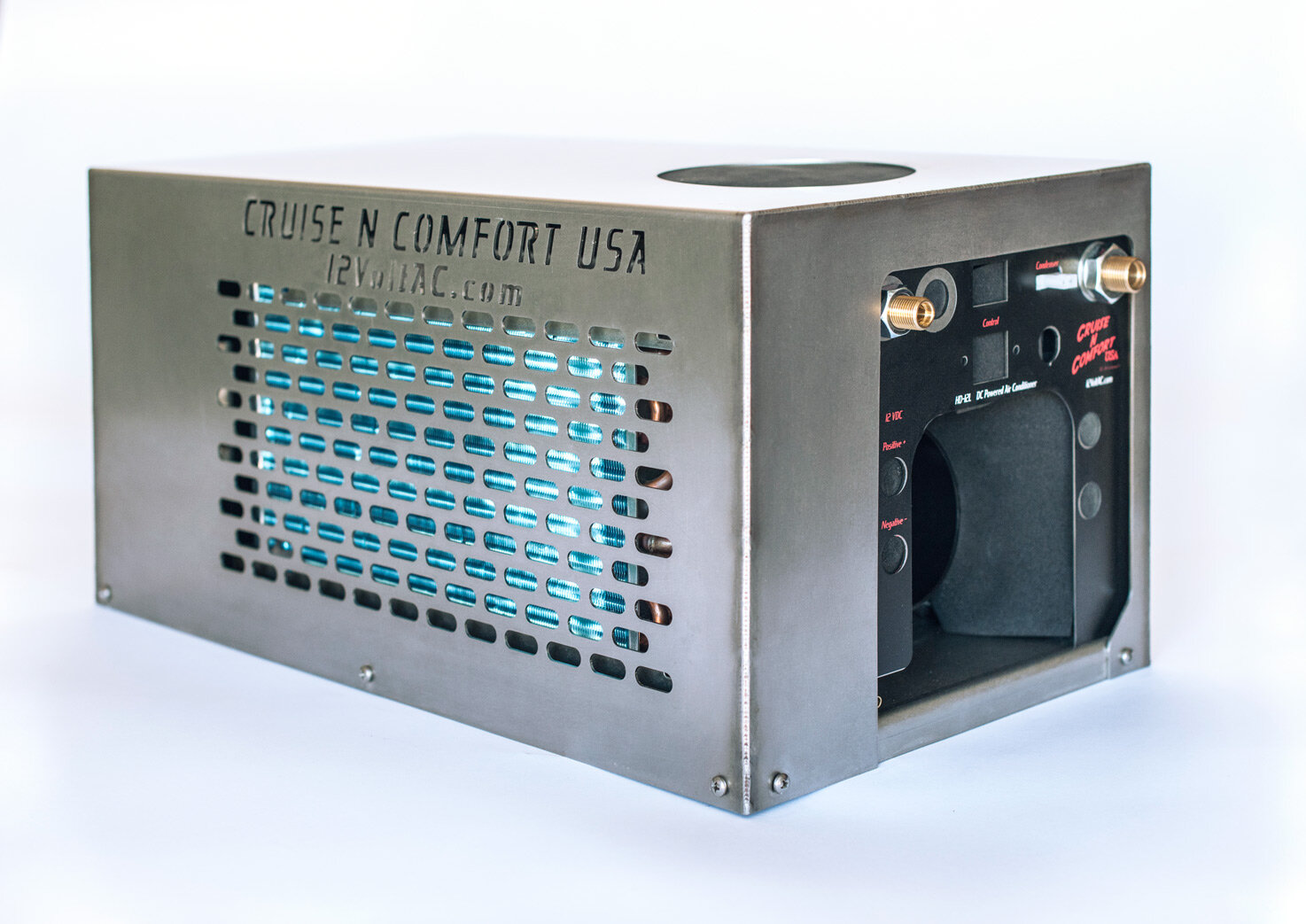I'm deep into my build purchases with my van hopefully arriving next month and I'm getting BOMBARDED with ads online for the Nomadic Cooling 12V AC. I know a lot of people love to talk about 12V AC units like they are some type of saving grace for a van build, but for me, I really don't see the benefits for a nomadic unit considering what they charge.
The top contender for me is the Rec-Pro Houghton RP-AC3400 13.5K BTU unit for $1500 and also comes with a heat pump (works down to 30F so depending on where you travel it may not function as your primary heat source). The Nomadic Cooling 11.8K BTU unit is $3900 without a heat pump. That's a $2400 difference. Lets assume you already plan on installing an inverter so with that factored in that's what it cost for me to buy my 1240AH lifepo4 diy battery pack. The Nomadic cooling also states it runs from 65-105amps. That's 832-1344w. Hardly the crazy savings over what the Rec-Pro says it runs at 1550w (I'm sure that's max everything and real world they don't run this high but I'll go off this number). So even with a 90% efficiency with an inverter that around a 1720w. So a difference of lets just round to an even 400w. Not an insignificant amount but also at the cost and lets assume you run off batteries for 8 hours a day that would take that's only 250ah difference.
I know there is also the dometic 12v unit, but that's only a 6,824 BTU and $2500. I'm not confident for where I travel that 7kBTU will be enough to keep the van cool.
There are people on this forum way smarter than me that probably give better numbers, but at these prices, 12V ACs are out as batteries get cheaper and cheaper and I already have an inverter for other high 120v loads (microwave and induction burner).
The top contender for me is the Rec-Pro Houghton RP-AC3400 13.5K BTU unit for $1500 and also comes with a heat pump (works down to 30F so depending on where you travel it may not function as your primary heat source). The Nomadic Cooling 11.8K BTU unit is $3900 without a heat pump. That's a $2400 difference. Lets assume you already plan on installing an inverter so with that factored in that's what it cost for me to buy my 1240AH lifepo4 diy battery pack. The Nomadic cooling also states it runs from 65-105amps. That's 832-1344w. Hardly the crazy savings over what the Rec-Pro says it runs at 1550w (I'm sure that's max everything and real world they don't run this high but I'll go off this number). So even with a 90% efficiency with an inverter that around a 1720w. So a difference of lets just round to an even 400w. Not an insignificant amount but also at the cost and lets assume you run off batteries for 8 hours a day that would take that's only 250ah difference.
I know there is also the dometic 12v unit, but that's only a 6,824 BTU and $2500. I'm not confident for where I travel that 7kBTU will be enough to keep the van cool.
There are people on this forum way smarter than me that probably give better numbers, but at these prices, 12V ACs are out as batteries get cheaper and cheaper and I already have an inverter for other high 120v loads (microwave and induction burner).







